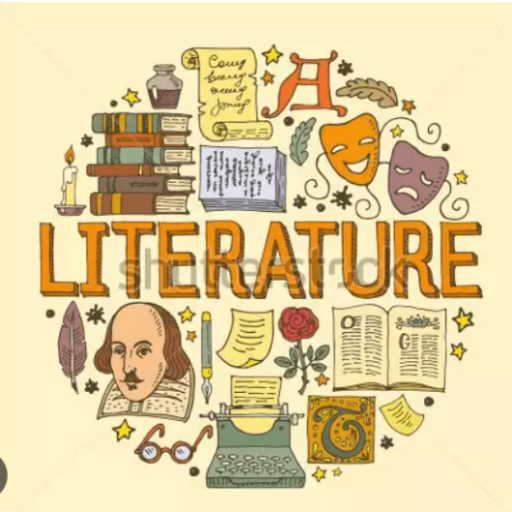Shakespearean female characters have long fascinated readers, scholars, and theatergoers alike. The works of William Shakespeare, a renowned playwright, and poet of the Elizabethan era, are known for their complex and multifaceted female characters.
Who played the female roles in Shakespearean plays?
Advertisement
From tragic heroines to cunning villains, Shakespeare’s portrayal of women encompasses a wide range of personalities, showcasing their strengths, weaknesses, and the societal constraints they faced.
Advertisement
In this article, we will delve into the captivating world of Shakespearean female characters, exploring their significance, impact, and enduring relevance.
Advertisement
Shakespearean Female Characters: A Kaleidoscope of Complexity
Shakespeare’s plays are replete with memorable female characters who defy the conventions of their time and challenge societal norms.
Advertisement
These women possess depth, agency, and complexity that elevate them beyond mere supporting roles.
They are the catalysts of action, driving the plot forward and influencing the lives of the other characters.
Viola: The Resourceful Disguise
One such compelling character is Viola from “Twelfth Night.” Disguised as Cesario, Viola navigates a web of mistaken identities and unrequited love.
She exhibits intelligence, wit, and resilience as she cleverly conceals her true identity. Despite the challenges she faces, Viola emerges as a symbol of perseverance and adaptability.
Lady Macbeth: Ambition Unleashed
Another fantastic female character is Lady Macbeth from “Macbeth.” With her relentless ambition and manipulation, Lady Macbeth propels her husband toward the path of regicide.
Her iconic monologues, such as “Out, damned spot!” showcase her deteriorating mental state, emphasizing the consequences of unchecked ambition.
Ophelia: Trapped in Madness
In “Hamlet,” Ophelia’s tragic descent into madness serves as a poignant exploration of the constraints imposed on women during Shakespeare’s time.
Ophelia’s vulnerability, innocence, and eventual madness highlight the oppressive nature of societal expectations. Her character embodies the struggles faced by women who were denied agency and autonomy.
Shakespearean Female Characters: Portrayals of Women in the Works of William Shakespeare
Portia: Intelligence and Ingenuity
Portia, from “The Merchant of Venice,” embodies intelligence, quick thinking, and resourcefulness. Disguised as a male lawyer, Portia uses her wit and eloquence to save Antonio’s life.
Her character challenges traditional gender roles, showcasing a woman’s capability for intellectual prowess and strategic thinking.
Beatrice: A Spirited Tongue
Beatrice, from “Much Ado About Nothing,” is known for her sharp wit, humor, and independence.
Her spirited banter with Benedick adds a comedic element to the play, while her refusal to conform to societal expectations reflects her strong sense of self.
Beatrice exemplifies Shakespeare’s penchant for creating vivacious and outspoken female characters.
Juliet: A Tragic Love Story
Undoubtedly one of Shakespeare’s most famous female characters, Juliet from “Romeo and Juliet” embodies youthful passion and idealized love.
Despite the tragic outcome of her romance, Juliet’s unwavering commitment to Romeo highlights the intensity and depth of her emotions. Her character serves as a timeless representation of youthful love and its consequences.
Conclusion: Shakespearean Female Characters
Shakespearean female characters have captivated audiences for centuries with their depth, complexity, and enduring relevance. From the resourceful Viola to the ambitious Lady Macbeth, these women defy societal expectations and challenge traditional gender roles.
Through their portrayal, Shakespeare explores the complexities of womanhood, shedding light on the struggles, aspirations, and agency of women during the Elizabethan era.
These characters continue to resonate with modern audiences, sparking discussions and interpretations that highlight their significance in the realm of literature and theater.
So, dive into the world of Shakespearean female characters and discover the indomitable spirit, resilience, and intelligence that define these captivating women.
Frequently Asked Questions
Shakespearean female characters are significant because they challenge societal norms and provide insight into the experiences of women during the Elizabethan era. They showcase the strength, intelligence, and complexity of women, highlighting their struggles and achievements.
Shakespeare portrayed women as multifaceted individuals with their own desires, ambitions, and flaws. His female characters often defied gender stereotypes, exhibiting agency, intelligence, and resilience. However, they were also subjected to the constraints imposed by patriarchal society.
During Shakespeare’s time, women were not allowed to act on the public stage. Young boys or men would portray female characters. This gender disparity further adds to the complexity of Shakespeare’s portrayal of women.
Yes, there have been numerous feminist interpretations of Shakespeare’s female characters. Scholars and theater practitioners have explored themes of gender, power, and agency, shedding new light on these complex characters and their interactions with the male-dominated world.
The most iconic Shakespearean female character is often considered to be Lady Macbeth. Her ambition, manipulation, and psychological unraveling have left an indelible mark on literature and popular culture.
Shakespeare’s female characters continue to resonate with modern audiences because they address timeless themes such as love, power, and identity. Their struggles and triumphs transcend the Elizabethan era, offering insights into the human condition that remain relevant today.

